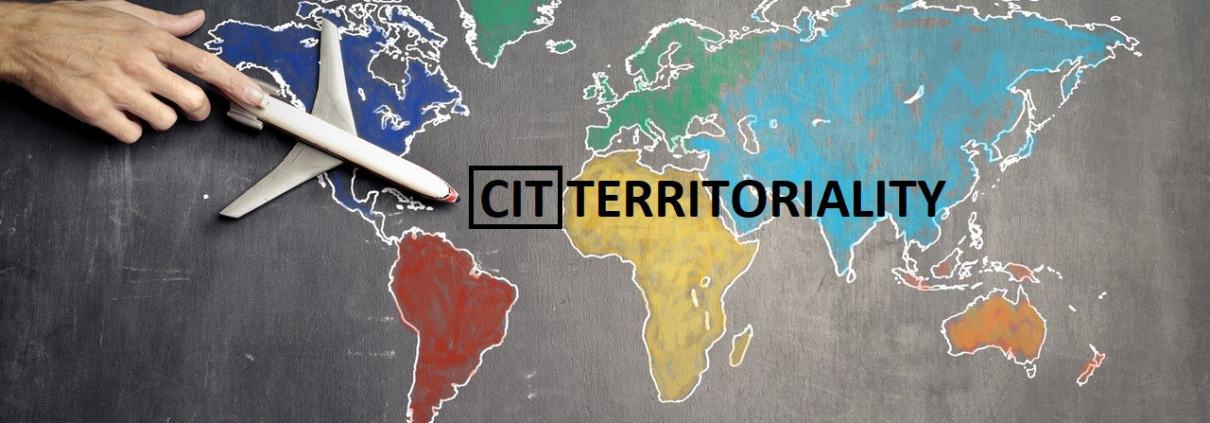CIT Territoriality
What are the CIT territoriality guidelines ?
The territoriality of CIT refers to the rules that apply to determine whether a company is subject to Corporate Income Tax based on its geographical location.
In a previous article, we explained the inner workings of VAT territoriality in Morocco. In a similar manner, we will clarify in this article the territoriality of the corporate income tax in the Kingdom.
The General Tax Code states that companies that have an activity in Morocco are subject to corporate income tax. This taxation is applied whether these companies have a registered office in Morocco or not
Furthermore, the CIT applies to all :
- products, profits, and income related to property owned in Morocco
- income and profits relating to the activity they carry out
- lucrative operations performed in Morocco, even on an occasional basis;
In addition, C.I.T may be due when a tax treaty grants Morocco the right to do so.
CIT Territoriality – Companies with head offices in Morocco
The presence of a head office is the first criterion of CIT territoriality. Indeed, a company which head office is in Morocco is a “company incorporated under Moroccan Law”.
Therefore, obviously, the corporate income tax is applicable. In fact, the tax is applied to the entirety of its net income. (Net income is difference between taxable revenue and deductible expenses)
Moreover, these companies must also pay CIT on transactions made abroad, unless under specific cases. In fact, CIT territoriality varies depending on:
- The nature of transactions performed
- The characteristics of the foreign party to the transaction
Territoriality rules also depend on whether there is a foreign establishment that qualifies as a permanent establishment.
To understand fully how territoriality works for companies with head offices in Morocco, we will analyze the two following cases:
- Transactions made in Morocco
- Transactions made abroad.
But first, one should know the meaning a “permanent establishment” as it will be used later in this article.
Permanent Establishment:
A permanent establishment means a fixed place of business where the business of an enterprise is wholly, or partly carried on. The term “permanent establishment” includes especially:
- Management offices
- Branch offices
- Factories
- Sales outlets
- Workshops
- Construction or assembly sites
- Purchasing office or counters operating in Morocco. In this case, the goods must be resold in Morocco.
1- Transactions made in Morocco
The territoriality regulations state that CIT on companies incorporated under Moroccan law, applies to operations carried out in Morocco.
Corporate income tax is applied to the entirety of taxable profits. This includes:
- sales made in Morocco ;
- services performed in Morocco ;
- export of goods and services (sales to foreign countries)
Example: A company whose head office is in Morocco and that carries out export transactions must submit the profits of it export to CIT.
Indeed, any foreign income not linked to a permanent establishment must be taxed in Morocco. We can cite the following examples (non-exhaustive list):
- Firstly, technical studies carried out by a Moroccan company for a foreign client
- Secondly, technical assistance and labor services
- Thirdly, rental of equipment abroad
In contrast, real estate and assembly work abroad escape taxation in Morocco. However, they may be taxed in Morocco if a treaty says so.
2- Establishments operating abroad
Companies with registered offices in Morocco that have a permanent establishment abroad are not subject to tax on the profits of that establishment. This rule applies unless stated otherwise in tax treaties.
The following conditions must be verified:
- The permanent establishment must carry out the transaction by its own means. If the Moroccan head office participates in performing the transaction, transfer pricing rules must be applied ;
- Goods sold or service performed must involve a complete business cycle of operations carried out abroad
It is necessary to specify, however, that the following items remain taxable in Morocco:
- Income from services rendered by the Moroccan company to its establishments abroad;
- The participation of these establishments in the administrative expenses of the Moroccan company.
If the operations do not form a complete business cycle abroad, it remains subject to corporate income tax in Morocco.
CIT Territoriality – Companies with head offices abroad
CIT territoriality regulations consider these companies as foreign companies. However, in some cases, all or part of their income is subjected to corporate income tax in Morocco.
Indeed, CIT is applied to:
- Firstly, property owned in Morocco ;
- Secondly, activity carried out in Morocco;
- Finally, occasional profit-making operations in Morocco;
Note that some gross income may be subject to a withholding tax.
(To know more, read: Withholding tax on Foreign services )
CIT Territoriality – Property owned in Morocco
The corporate income tax applies to the income earned from the management or sale of the said assets. The tax can take the form of:
- a tax return
- or a withholding tax
Obviously, in the case of a tax treaty, its provisions take precedence.
CIT Territoriality – Activity carried out in Morocco
In the absence of a tax treaty, a foreign company that has a permanent establishment in Morocco is subject to income tax on the profits of that establishment.
Moreover, note that foreign companies that:
- carry out a transaction in Morocco
- in a complete business cycle
are also subject to corporate income tax in Morocco. In this case, the absence of a permanent establishment is not sufficient to avoid taxation.
Example: A drop shipping website that carries out transactions from a Moroccan supplier to a Moroccan customer.
CIT Territoriality – Occasional profit-making operations in Morocco
CIT territoriality regulations specify that for a transaction to be subject to corporate income tax, the habitual nature is not necessary. Thus, even an occasional operation remains subject to this tax as long as it is lucrative.
READ MORE :
Turnover: Tax regulations in Morocco



